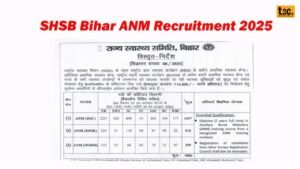Trump Urges India and Pakistan to De-Escalate Conflict Quickly! Will India and Pakistan De-Escalate or Not? Check Here!

Trump De Escalation Alert! The recent escalation of tensions between India and Pakistan has raised global concerns, prompting the United States to step in and urge both nations to de-escalate the conflict. Following India’s strike on nine terror sites in Pakistan and Pakistan-occupied Kashmir under ‘Operation Sindoor’, the White House has called for a swift resolution to the conflict.
US President Donald Trump has expressed his desire to see the conflict de-escalate “as quickly as possible”, acknowledging the long-standing hostility between the two neighbors. National Security Advisor Marco Rubio has been in constant communication with leaders of both countries, trying to bring the conflict to an end.
With diplomatic efforts underway, the international community is watching closely, hoping for a peaceful resolution to the conflict. As tensions continue to simmer, the US urging for de-escalation marks a significant step towards peace in the region.
Background of the Trump De Escalation Conflict
The tensions between India and Pakistan intensified after India’s strike on nine terror sites in Pakistan and Pakistan-occupied Kashmir (PoK) under ‘Operation Sindoor’ early Wednesday. This move was a powerful retaliation to the Pahalgam massacre on April 22, which claimed the lives of 26 people, mostly tourists. Before proceeding further, take a look at: India successfully intercepts 600+ drones launched by Pakistan at 30 multiple locations! India Pakistan War!
Trump De Escalation US Diplomatic Efforts
White House Press Secretary Karoline Leavitt stated that Trump “has good relationships” with the leaders of both countries, and National Security Advisor Marco Rubio has been in “constant communication with the leaders of both countries, trying to bring this conflict to an end”.

Rubio has been actively involved in diplomatic efforts, speaking separately with External Affairs Minister S Jaishankar and Pakistani Prime Minister Shehbaz Sharif, emphasizing the need for de-escalation and urging Pakistan to take concrete steps to end support for terrorist groups.
India’s Firm Stance
During his conversation with Rubio, Jaishankar made India’s position clear, stating that India will “firmly counter any attempts by Pakistan to escalate the situation”. This firm stance underscores India’s commitment to safeguarding its national security. Do not miss out on reading on: Dance of Hillary Virus: Pakistan’s Cyber Offensive Amid Ongoing Conflict!
Global Concerns and Diplomatic Efforts
The G7 nations have also condemned the terrorist attack in Pahalgam and urged India and Pakistan to exercise maximum restraint amid rising military tensions. They called for immediate de-escalation and encouraged direct dialogue for a peaceful resolution, expressing deep concern for civilian safety.
A Step Towards Peace of Trump De Escalation
The US urging for de-escalation is a significant step towards peace in the region. With diplomatic efforts underway, there is hope that the conflict can be resolved peacefully. As the situation continues to unfold, one thing is clear: the world is watching, and the need for peace is paramount. Cast your eyes on: Shield of the Republic: A Deep Dive into India’s Defence Laws
Will India and Pakistan De-Escalate or Not?
The possibility of de-escalation between India and Pakistan seems uncertain, with both countries engaging in aggressive military actions. Pakistan has refused to step back from confrontation, with their military spokesperson stating, “We will not de-escalate. India should expect a response for the damage they have caused”. Meanwhile, India has taken a firm stance, asserting that their actions were a response to Pakistan’s terrorism and not a prelude to war.
The G7 said in a statement, “We, the G7 Foreign Ministers of Canada, France, Germany, Italy, Japan, the United Kingdom and the United States of America and the High Representative of the European Union, strongly condemn the egregious terrorist attack in Pahalgam on April 22 and urge maximum restraint from both India and Pakistan. Further military escalation poses a serious threat to regional stability. We are deepl concerned for the safety of civilians on both sides,”.
Check out: Current Affairs April 2025 for Competitive Exams: Week 1

Expert Insights:
Shashi Tharoor, Congress MP and head of the Parliament’s Standing Committee on External Affairs, believes that India has been clear in its signaling that it doesn’t want to escalate the conflict. However, he notes that Pakistan’s actions will determine the course of events, and it’s uncertain how the situation will unfold ⁴.
Given the current tensions and military actions, it’s challenging to predict whether India and Pakistan will de-escalate their conflict. Diplomatic efforts and international pressure may play a significant role in shaping the outcome.
Key Takeaways
- US Stance: The US wants to see the conflict between India and Pakistan de-escalate “as quickly as possible”.
- Diplomatic Efforts: Marco Rubio is in constant communication with leaders of both countries, trying to bring the conflict to an end.
- India’s Position: India will firmly counter any attempts by Pakistan to escalate the situation.
- Global Concerns: The G7 nations have urged India and Pakistan to exercise maximum restraint and engage in direct dialogue for a peaceful resolution.
Don’t miss out! Learn how student chapters can provide networking opportunities and professional growth. Click to read and join our WhatsApp community!
Not sure which career to choose? Our professionals can guide you. Book your counselling session now on Mytagapp.com!







